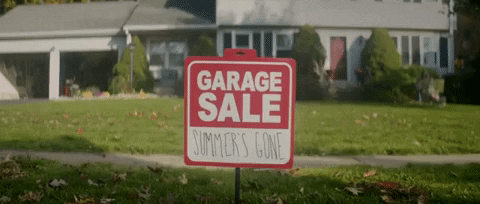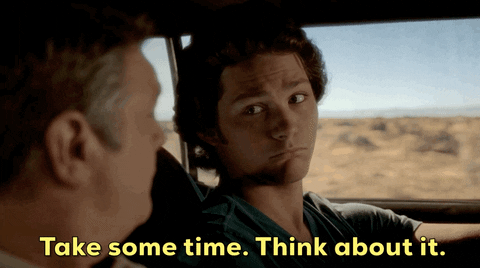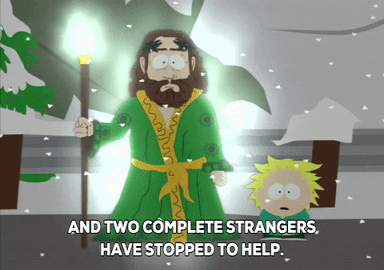Leadership & Entrepreneurship
03.
My list of failures and some lessons learned
Being able to create a new product that solves a problem, or offer existing products and services at more affordable costs to help more people, while generating job opportunities, learning, and making money was always a challenge that interested me.
The first business venture that I tried was a "toy store" that I set up when I was about 7 years old. I wasn't too worried about creating jobs, just about making some money. It worked out very well, as I managed to sell several trinkets to my friends.
However, the deal went down when the parents of one of my customers found out that their son had spent good money on a plastic toy, and told my mother, who, very angry, made me shut down my operation.
Obviously, I didn't think about it this way at the time, but today I see a lesson: the decision-maker and the user might be different people, and it's important to take both into consideration.
In this case, the client was a friend, but an important stakeholder responsible for final approval was the parents. Something that I am constantly reminded of nowadays, for dealing with projects with large companies and multiple stakeholders involved.

Another "children's entrepreneurship" failed attempt was when I spent all my savings buying a Digital Marketing info course when I was around 13 years old. It was the beginning of Google ads. I was clearly so right about what to study but didn't have a clue about what to do with it.
Unfortunately, after studying a lot, I realized that I had nothing to do with that knowledge, after all, I had no clients or anything to do with it. I wasted my money, and also my time.
Very often, many people (myself included) feel that we are not prepared and seek to strengthen ourselves with training, a course, or a book. I do it a lot, as I like to have a more in-depth comprehension of the topics I study.
However, the reality is that we may never feel 100% prepared. And neither should we. After all, there will always be something new to learn, but it only makes sense to invest deeply in something when you have the perspective to use that.
And, perhaps, the fact that we sometimes hide through our studies may just be a form of "productive procrastination" to face what really matters: taking action and making what really matters happen.

Finally, when I was about 12, I tried to host some servers from an online MMO game called Tibia. I ran into some technical difficulties, but I didn't ask for help and ended up being defeated by them.
Even though I managed to do a good job for a child, having uploaded my servers with custom edits to some parts of the code, I remember spending hours looking at some XML files, without understanding what that meant.
I clearly needed help, and perhaps I could get support from close people who had this knowledge.
Today, I am aware that no one gets anywhere alone. And, despite trying to get by and maintain my independence, I don't hesitate to ask for help whenever I need it.
To my surprise, several of the people I coldly approach on LinkedIn when I want to know about a topic respond to me with a wealth of details and even offer to set up conversations, for example. I also do the same, trying to help whenever I can.
I was already used to this type of prospecting when I represented a company or was doing some research, as I had already coldly contacted several people on behalf of a company I worked for, for example. However, I had never done this under my "personal name", and simply claiming "curiosity" to explore a topic.
But that's how, in 2021, I scheduled conversations with more than 10 colleges abroad (including a director from Stanford) to talk about how these schools worked and monitored the employability of their students and graduates.
The conversations were so productive that I decided to explore the topic with some Brazilian colleges. Again, I got more than 10 conversations simply by prospecting directors and deans directly on LinkedIn or contacting them via email.
As the idea progressed, I similarly scheduled conversations with former Edtech founders, venture capital fund managers, and successful entrepreneurs to help me shape my evolving business.
You can find more details about the product I created and how it helped a University discover a 30-million dollar opportunity after these conversations in the Data Analytics section.

The tip here is: don't be afraid to ask for help. A good initial step is to use the power of your own network, with posts on LinkedIn, Instagram, and WhatsApp groups so that your own contacts can help you reach the right people. Don't underestimate the power of social media, contacts of your contacts can help too!
Finally, in adulthood, a "strategic" failure was my time at nata.house, a software company that had recently achieved 7-figure revenue, founded by a friend from business school and two of his best friends, who worked with software development.
I accepted the proposal in December 2019, made by my friend who wanted my offered me to become a partner in the business, as he was feeling overwhelmed and needed help to make the company grow.
Excited by the possibility of being a partner and growing a tech business right after graduating, I became frustrated in the first few weeks when I realized things were not going to work the way I expected.
However, I consider this a strategic failure, as I had already decided to leave my previous job anyway, so I didn't feel like losing anything.
Furthermore, I knew other companies I was aiming for offers would open up positions in a few months, and in a transparent agreement with my friend, we had agreed that I would focus on preparing myself for these positions in other companies, in case things didn't go as we expected in nata.house.
It was a great opportunity to feel the pressure of being an entrepreneur and what it means to be a partner in a business.
It didn't quite work out there, but sort of did in the bigger picture, as I received an offer a few months later from Red Ventures, one of the companies I was aiming to get an offer from.
The lesson learned here may be to take calculated risks, always have a plan B, and know what is the worst that could happen and what you would do in that situation.
I knew this move was risky, but I was prepared for it from moment zero.
On the other hand, I also believe that on certain occasions, we need to believe that something will work out and give 100% of ourselves to make it happen. The big question is how to differentiate between these two types of moments.